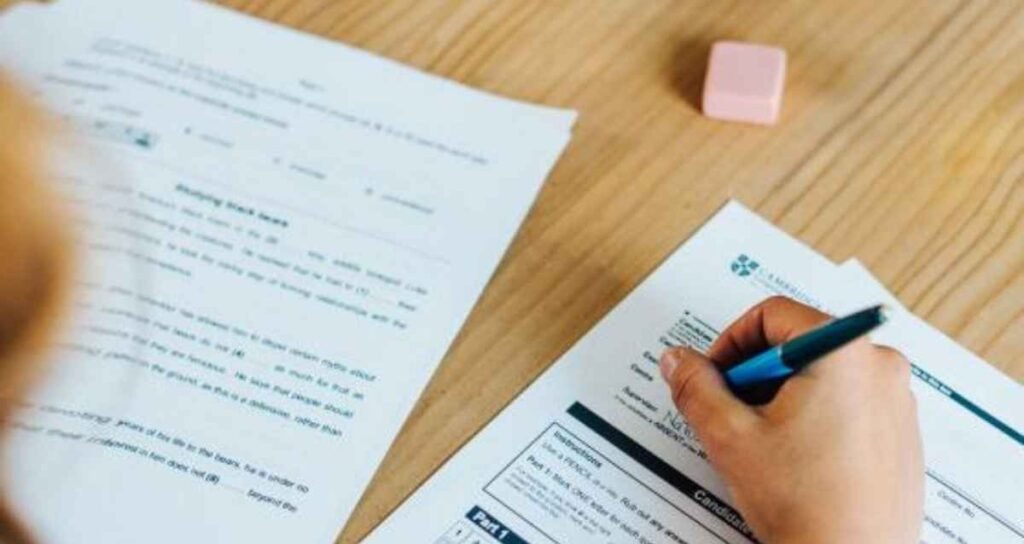Learning English as a Second Language (ESL) can be an exciting yet challenging journey. Whether you are a college student, an adult learner, or someone preparing for professional opportunities, understanding how to prepare for ESL effectively can make a significant difference in your progress. This guide provides a detailed step-by-step approach, including practical strategies, teaching resources, and study tips to help you achieve fluency and confidence in English.
Official Website-:https://www.esl-languages.com/en
Understanding ESL and Its Importance
ESL refers to learning English by non-native speakers in a country where English is the primary language. The goal of ESL programs is to develop students’ ability to communicate effectively in English, both academically and socially. Developing English skills not only opens doors for education and career advancement but also helps in integrating into English-speaking environments.
For structured language exam preparation tips, you can also check our JLPT registration process guide.
Step 1: Assess Your Current English Level
Before starting any ESL program, it’s crucial to evaluate your current proficiency. Most ESL courses categorize learners into beginner, intermediate, and advanced levels. Understanding your starting point helps tailor your learning plan effectively.
Ways to assess your level:
- Online Placement Tests: Many free or paid platforms provide quick assessments for grammar, vocabulary, reading, and listening.
- Self-Assessment: Rate your skills honestly in the four core areas.
- Classroom Evaluation: ESL instructors can provide insights based on your performance in sample exercises.
- Reference Materials: Reviewing Teaching English to Beginners Material PDF can help you gauge your understanding of fundamental concepts.
This assessment ensures that your learning is structured and efficient from the very beginning.

Step 2: Set Clear, Achievable Goals
Setting goals is one of the most effective ways to stay motivated during your ESL journey. Ask yourself:
- Do I want to improve conversational English?
- Am I preparing for an exam like IELTS, TOEFL, or a school test?
- Is my goal professional proficiency for workplace communication?
Once your goals are clear, break them into smaller, achievable targets:
- Learn 50 new vocabulary words per week.
- Complete one grammar chapter every week.
- Practice speaking for 15–30 minutes daily.
College students should also focus on strategies like How to prepare for ESL in college, which include time management, note-taking, and consistent study schedules. Adults can focus on workplace communication and professional scenarios.
Step 3: Gather High-Quality Learning Resources
The right materials are essential for effective ESL learning. Some recommended resources include:
- 50 Strategies for Teaching English Language Learners PDF – Offers practical classroom and self-study strategies.
- Methods and Strategies of Teaching English PDF – Focuses on structured teaching approaches.
- ESL Teaching Methods PDF – Guides learners and teachers on effective methodologies.
- Interactive apps and online courses for vocabulary, grammar, pronunciation, and reading comprehension.
Diverse resources engage different learning styles—visual, auditory, and kinesthetic—helping learners retain information better. For students aiming for exams, these resources also provide essential practice exercises and examples.
Students planning to study abroad can learn more about applying through our Japan student visa guide
Step 4: Develop Core English Skills
Mastering ESL requires building four core skills:
- Listening:
- Listen to English podcasts, audiobooks, songs, and news.
- Pay attention to pronunciation, intonation, and vocabulary usage.
- Practice note-taking while listening to lectures or podcasts.
- Speaking:
- Engage in daily conversations with friends, peers, or native speakers.
- Record yourself speaking to evaluate pronunciation and fluency.
- Join discussion groups or English-speaking clubs.
- Reading:
- Begin with simple texts such as stories or short articles.
- Gradually move to newspapers, academic journals, and professional materials.
- Highlight new words and phrases and review them regularly.
- Writing:
- Maintain a journal or diary in English.
- Write essays, emails, and short stories.
- Practice summarizing articles or lectures in your own words.
Adults preparing for workplace communication can combine these skills with role-specific scenarios, while college students can focus on academic reading, writing, and exam preparation.
Step 5: Practice Step by Step
How to teach English step by step involves structured practice:
- Begin with basic vocabulary and common phrases.
- Learn grammar rules and sentence structures.
- Apply vocabulary and grammar in real conversations.
- Gradually increase complexity by reading and summarizing texts.
- Practice writing essays, reports, and emails regularly.
Consistency is key. Daily short practice sessions often yield better results than occasional long study hours.
Adults aiming for international work experience may benefit from reading about how to apply for SSW visa in Japan.
Step 5: Practice Step by Step
A structured approach ensures long-term success. How to teach English step by step can be applied as follows:
- Begin with basic vocabulary and common phrases.
- Understand grammar rules and sentence structures.
- Practice applying new words and grammar in conversations.
- Move to reading and summarizing texts progressively.
- Gradually increase writing complexity, including essays and formal emails.
Consistency is crucial. Short daily practice sessions are more effective than irregular, long study periods. Incorporating interactive exercises and speaking sessions improves both confidence and fluency.
Step 6: Engage in Interactive Learning
Interactive methods enhance comprehension and make learning more enjoyable. Some strategies include:
- Group Discussions: Exchange ideas, practice speaking, and learn new expressions.
- Role-Playing Exercises: Simulate real-life situations to improve practical English usage.
- Online Language Exchanges: Connect with international learners for mutual learning.
- Classroom-based activities that show how to support ESL students in the classroom can also help.
Interactive learning encourages learners to use English actively, not just passively, which accelerates skill development.
Step 7: Monitor Progress and Adjust Strategies
Regular assessment is vital to track progress and identify weaknesses. Methods include:
- Quizzes and self-assessment exercises.
- Writing and speaking evaluations.
- Reviewing listening comprehension through podcasts or lectures.
If listening comprehension is weak, allocate more practice to audio exercises. If writing skills are lacking, focus on essay writing and grammar exercises. Adjusting strategies ensures continuous improvement without stagnation.
Step 8: Prepare for Exams
If your ESL goal includes academic achievement, proper exam preparation is essential. Tips for effective test preparation:
- Review class notes and ESL materials thoroughly.
- Take mock tests to simulate exam conditions.
- Focus on time management during the test.
- Utilize study guides and PDF resources for practice.
- Take short breaks to avoid burnout before exams.
These techniques enhance accuracy, speed, and confidence in English exams.

Step 9: Create a Supportive Learning Environment
A positive and supportive environment enhances learning. Surround yourself with:
- Friends or mentors who encourage English practice.
- Study groups that promote discussion and collaboration.
- Access to English media, such as movies, books, and news channels.
- Tools and apps for consistent vocabulary and grammar practice.
A conducive learning environment fosters both motivation and immersion.
For more details on work opportunities, visit our SSW Japan visa page.
Step 10: Stay Motivated and Persistent
Learning ESL is a gradual process that requires patience and persistence. Celebrate small victories, maintain curiosity, and embrace challenges. Remember, consistent effort and practice lead to mastery. Tracking your improvements over time keeps motivation high and encourages continuous learning.
FAQs About ESL Preparation
1. How do I prepare for an ESL class?
Start by reviewing your previous lessons, complete assigned homework, and practice speaking and listening daily to reinforce concepts.
2. What are the 4 skills of ESL?
The four core skills are reading, writing, listening, and speaking. All four are equally important for language mastery.
3. What are the 7 principles of second language learning?
These include motivation, meaningful communication, practice, feedback, context, cultural understanding, and exposure to authentic language.
4. How to get 100% in English exam?
Consistent study, understanding grammar and vocabulary, practicing past papers, and time management are key to achieving top marks.
5. Is 27 out of 80 pass or fail?
This depends on the exam’s passing criteria. Typically, 27/80 is below 50% and might be considered a fail in most academic settings.
6. What should I do 30 minutes before a test?
Relax, review key points or summaries, avoid cramming, and ensure you are mentally focused and hydrated.
7. How to prepare for ESL for adults?
Adults should focus on practical communication skills, workplace English, structured learning plans, and interactive exercises.
8. How to prepare for ESL in college?
College learners should balance classroom instruction, homework, peer discussions, and self-study to improve comprehension and performance.
9. How can I practice English speaking at home?
Engage in conversations with friends or language partners, record yourself speaking, and repeat dialogues from audio lessons or videos.
10. What is the best method to support ESL students in class?
Provide clear instructions, use visual aids, offer consistent feedback, encourage participation, and create an inclusive environment for practice.
Learners interested in multilingual proficiency can explore our German language course in Delhi.”
Conclusion
Preparing for ESL is a step-by-step journey that combines structured learning, interactive practice, and consistent effort. By understanding your level, setting goals, gathering resources, and practicing core skills, you can achieve fluency and confidence in English. Whether you are an adult learner or a college student, following these strategies ensures steady progress and academic or professional success. Remember, the key to mastering English is persistence, practice, and a supportive learning environment.


